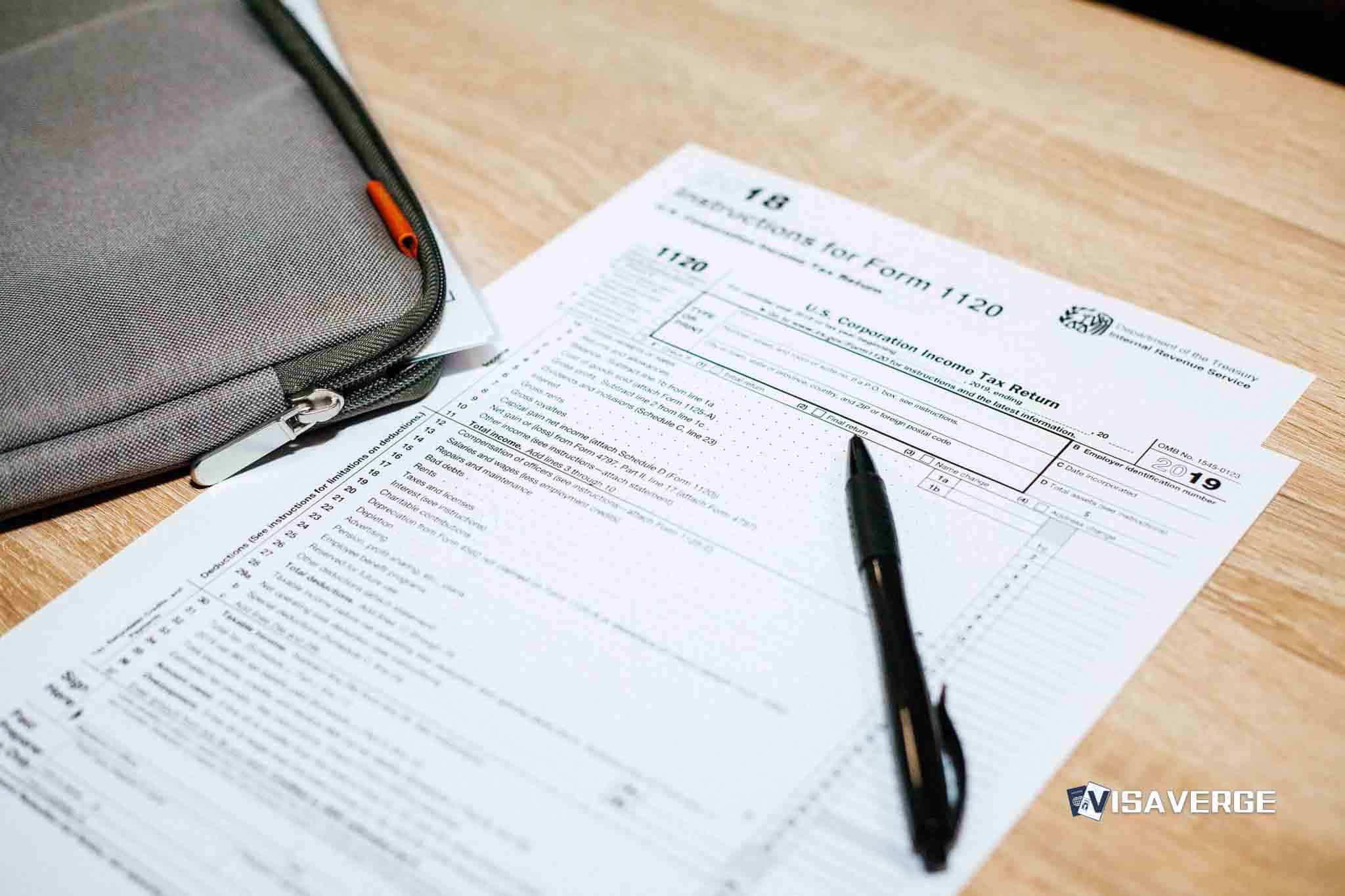Understanding IRC § 6651(a)(2) Penalties
When it comes to tax compliance, staying informed and adhering to the deadlines is crucial. The Internal Revenue Code (IRC) specifies penalties for various infractions, including failure to pay the proper amount of taxes owed. Specifically, IRC § 6651(a)(2) outlines the penalties applicable for failing to pay the tax shown on a return.
Consequences of Failing to Pay Your Tax Bill
If you don’t pay the tax shown on your return by the due date, you can expect to face significant financial consequences. Under IRC § 6651(a)(2), for each month or part of a month the tax goes unpaid, a penalty of 0.5% of the unpaid tax will be charged. However, this penalty won’t exceed 25% of your unpaid taxes.
It’s important to note that this failure to pay tax penalty will continue to accrue until the unpaid amount is satisfied or until the maximum penalty of 25% is reached. This can add a considerable amount to your overall tax liability if not addressed quickly.
Exceptions and Relief from Penalties
In some instances, taxpayers might not be subject to the failure to pay tax penalty. The IRS may provide relief if you can prove reasonable cause for not paying on time. However, you should be prepared to explain and provide evidence for your failure to pay, as ‘reasonable cause’ is subject to strict interpretation by the IRS.

This is where the quote “Sometimes circumstances beyond your control can affect your ability to meet tax obligations, but it’s imperative to communicate with the IRS to seek relief,” comes into play. It’s crucial to maintain open communication with the IRS and provide proper documentation to support your claim for relief.
How to Avoid IRC § 6651(a)(2) Penalties
Avoiding the failure to pay tax penalty can be straightforward if you follow a few key steps:
- Ensure Timely Payment: Make sure to pay the owed tax by the due date. Consider setting reminders or enrolling in electronic payments to manage deadlines effectively.
- Communicate with the IRS: If you anticipate difficulty in paying your taxes, contact the IRS to discuss possible payment plans or extensions. The IRS provides options such as installment agreements that can help manage tax liabilities over time.
-
Seek Professional Assistance: If you’re confused about your tax bill or how to proceed, consulting with a tax professional can be invaluable. They can help figure out the best approach to dealing with your tax obligations.
Navigating Complex Tax Situations
If you find yourself facing penalties under IRC § 6651(a)(2), it’s essential to act promptly. Whether you are an individual taxpayer or a business owner, dealing with tax issues can be daunting. But remember, ignoring the problem won’t make it go away—it will only grow due to penalties and interest.
Visit the IRS’s Understanding Penalties and Interest page to learn more about your options and how to resolve penalty issues.
Final Thoughts
Incurring a failure to pay tax penalty under IRC § 6651(a)(2) can be a costly mistake, but with awareness and proactive measures, it can be avoided or mitigated. Take the time to understand your tax obligations, remain diligent in meeting deadlines, and reach out for assistance if you find yourself in a bind. Remember, the key to successfully managing your taxes is preparation and prompt action.
Still Got Questions? Read Below to Know More:
If I borrowed money from a friend to pay my taxes and avoid the penalty, can I write off the interest I pay them
Yes, if you borrowed money from a friend to pay your taxes and you’re paying interest on that loan, you might be able to deduct the interest paid, depending on how the loan is structured and what it’s used for. Personal interest you pay, except certain mortgage interest, is not deductible on your tax return. However, if the loan from your friend is secured and used to invest in a business, for example, the interest might be deductible as business interest. If the loan is used to buy property that generates investment income, the interest could be considered investment interest, which may also be deductible.
The IRS outlines detailed rules about which types of interest are deductible. To qualify for a deduction, the interest you pay must fall into one of these categories:
– Business interest: Money borrowed to invest in a business.
– Investment interest: Money borrowed to buy property that produces taxable income.
– Mortgage interest: Specifically secured by your primary or secondary home.
– Student loan interest: Subject to restrictions, such as your income level.
For authoritative information on the types of interest that are deductible, you can visit the official IRS Interest Expense page. Remember, to claim such a deduction, proper documentation of the loan and interest payments is essential. It’s recommended to draft a formal agreement and maintain records of transactions. Consult with a tax professional to review your situation and assess if the interest you pay on the loan can be deducted based on your specific circumstances.
Are there consequences beyond the 25% penalty if I keep failing to pay my taxes for over a year
Yes, failing to pay your taxes can result in several consequences beyond a 25% penalty. If you continue not to pay your taxes for over a year, the IRS may take more severe actions, including:
- Interest: The IRS will charge interest on the unpaid balance, which compounds daily from the due date of the tax return until the payment date.
- Tax Liens: The IRS may file a Notice of Federal Tax Lien, which is a public document that alerts creditors that the government has a legal right to your property. This can affect your credit rating severely and make it hard to sell property or get credit.
- Tax Levies: The IRS may proceed with a levy, seizing your property to satisfy the tax debt. This includes bank accounts, wages, and other income, or assets like your car or home.
- Criminal Charges: In extreme cases, if you willfully fail to file or pay taxes, you could face criminal charges. This could lead to a fine of up to $250,000 and/or imprisonment for up to 5 years for individuals, according to the IRS.
The IRS states, “The failure to pay penalty is generally 0.5 percent of your unpaid taxes for each month or part of a month that your taxes remain unpaid. The penalty starts accruing the day after taxes are due and can build up to as much as 25 percent of your unpaid taxes.”
It’s important to address unpaid taxes promptly to avoid these outcomes. The IRS offers options like payment plans and offers in compromise for those who cannot pay their taxes in full. If you’re facing tax payment issues, consult a tax professional or contact the IRS directly for guidance on your specific situation.
For more detailed information, you can visit the IRS’s official website for penalties at Understanding Penalties and Interest and about tax liens and levies at Understanding a Federal Tax Lien and Levy.
If I set up a payment plan for my taxes before the due date, will I still face the 0.5% monthly penalty
Yes, setting up a payment plan, also known as an installment agreement with the IRS, will typically still result in a reduced failure-to-pay penalty. If you owe taxes and cannot pay in full by the due date, arranging a payment plan can prevent more severe measures such as levies or liens. However, it’s important to understand the penalty structure:
- Normal penalty: The regular failure-to-pay penalty is “0.5% for each month or part of a month that your taxes are not paid in full”. It’s charged on the unpaid portion of the tax.
- Reduced penalty with installment agreement: If you file your return on time and set up an installment agreement, the IRS reduces the penalty to “0.25% for each month or part of a month in which an installment agreement is in effect”.
Remember, interest will also accrue on any unpaid tax from the due date of the return until the balance is paid in full. The rate is determined by the IRS, and it may change each quarter.
For more specific information, refer to the IRS Fresh Start program and the IRS’s page on penalties at: IRS Topic No. 202 Tax Payment Options and IRS Topic No. 653 IRS Notices and Bills, Penalties, and Interest Charges.
Additionally, as immigration status can often complicate tax matters, it may be helpful to consult directly with the IRS or a tax professional for personalized advice. Keep in mind that maintaining good standing with the IRS is important for immigration processes as well. For immigration-related information, the official U.S. Citizenship and Immigration Services (USCIS) website is a relevant resource: USCIS.
What kind of evidence do I need to prove a ‘reasonable cause’ when I can’t pay my taxes on time
When you cannot pay your taxes on time and need to demonstrate a ‘reasonable cause’ to the IRS, you’ll need to provide evidence that shows your failure to pay was due to circumstances beyond your control and not due to willful neglect. Here’s a list of the types of evidence you might consider when making your case for reasonable cause:
- Documented Health Issues: Medical records, doctor’s notes, or hospital receipts can prove health-related hardships.
- Financial Records: Bank statements, financial statements, or payroll slips showcasing financial distress or unexpected expenses.
- Natural Disasters: Insurance claims, reports from disaster relief agencies, or newspaper articles can support claims of natural disasters preventing timely payment.
- Death, Serious Illness, or unavoidable absence of the taxpayer or a member of the taxpayer’s immediate family.
- Official Statements: If you received incorrect advice from the IRS, written documentation or recorded communications can be crucial.
According to the IRS, “The ‘reasonable cause’ is based on all the facts and circumstances in your situation. We will consider any reason which establishes that you used all ordinary business care and prudence to meet your Federal tax obligations but were nevertheless unable to do so.” This is broadly interpreted, so it’s essential to provide a clear narrative backed by documentary evidence that details the circumstances that hindered your ability to pay.
For more detailed information on this topic and for guidance in how to present your situation, consult the IRS’s webpage on ‘reasonable cause’ at Reasonable Cause. This resource offers an in-depth understanding of what the IRS considers when evaluating your case and how you can formulate your explanation backed by strong evidence. Remember, providing complete and accurate documentation is crucial to establishing the credibility of your claim.
Can I reduce or stop the penalty from growing if I pay a portion of my tax bill, but not the full amount
Yes, you can reduce the growth of the penalty on your unpaid taxes by paying a portion of your tax bill, even if you can’t pay the full amount all at once. The IRS calculates penalties and interest on the amount you owe, so any payment will lower your balance and thus reduce the accumulation of additional charges. Here’s what you should know:
- Partial Payments Reduce Penalties and Interest: When you make a partial payment, it reduces your total unpaid tax. Since both penalties and interest are calculated based on what you still owe, any reduction in the principal will lower future accruals of these charges.
- Set Up an Installment Agreement: Consider setting up an installment agreement if you can’t pay the full amount. This approach allows you to make monthly payments over time. While penalties and interest continue to accrile, the overall rate of penalties may be reduced.
“The failure-to-pay penalty rate is generally 0.5% per month of your unpaid taxes. It applies for each month or part of a month your taxes remain unpaid. The rate drops to 0.25% for any month where an installment agreement is in effect.” – IRS
- Interest Is Statutory and Cannot Be Reduced: It’s important to note that while penalties may be subject to reduction or abatement under certain circumstances, interest charged by law cannot be reduced, unless an error or delay can be attributed to an IRS employee’s actions.
You can find more information about payment options and how penalties and interest are calculated on the IRS website: IRS Payment Plans and Understanding Penalties and Interest. Always reach out to the IRS or a tax professional if you need personalized guidance based on your specific situation.
Learn today
Glossary or Definitions
- Internal Revenue Code (IRC): The Internal Revenue Code is a set of federal tax laws in the United States that outlines the rules and regulations governing taxation. It provides guidelines for individuals, businesses, and other entities to determine their tax obligations and responsibilities.
- IRC § 6651(a)(2): IRC § 6651(a)(2) refers to a specific section of the Internal Revenue Code that outlines the penalties for failing to pay the tax shown on a tax return on time.
-
Tax Compliance: Tax compliance refers to the act of following and adhering to the rules and regulations set forth by the tax authorities. It involves accurately reporting income, claiming deductions, and paying the correct amount of taxes owed within the specified deadlines.
-
Penalties: Penalties are financial consequences imposed by the tax authorities for non-compliance with tax laws. They are intended to enforce compliance and discourage individuals and businesses from engaging in activities that violate tax regulations.
-
Failure to Pay Tax Penalty: The failure to pay tax penalty is a specific penalty that applies when an individual or business fails to pay the tax amount owed by the specified deadline. Under IRC § 6651(a)(2), this penalty is calculated at 0.5% of the unpaid tax per month or part of a month, up to a maximum of 25% of the unpaid tax.
-
Reasonable Cause: Reasonable cause is a legal term used to describe a legitimate and justifiable reason for not complying with tax laws, such as the failure to pay tax shown on a return. To avoid or obtain relief from penalties, taxpayers must provide evidence and demonstrate that their failure to pay was due to circumstances beyond their control.
-
Relief from Penalties: Relief from penalties refers to the reduction or elimination of penalties imposed by tax authorities. The IRS may provide relief if taxpayers can demonstrate reasonable cause for non-compliance or if they qualify for specific penalty relief programs.
-
Timely Payment: Timely payment refers to the act of paying the owed tax by the specified deadline. It is crucial to avoid penalties and interest charges that can accumulate if the tax payment is not made on time.
-
Installment Agreement: An installment agreement is a payment plan agreed upon between the taxpayer and the IRS to repay an outstanding tax liability over an extended period. It allows taxpayers to pay off their taxes in regular installments instead of paying the full amount immediately.
-
Tax Liability: Tax liability is the total amount of taxes owed by an individual or business to the tax authorities. It is calculated based on income, deductions, credits, and other factors according to the applicable tax laws and regulations.
-
Interest: Interest is the additional amount charged on top of the tax owed when it is not paid on time. The IRS uses interest rates determined by law to calculate interest charges on unpaid taxes.
-
Tax Professional: A tax professional is an individual, such as a certified public accountant (CPA) or an enrolled agent (EA), who possesses expertise in tax laws and is qualified to provide advice and assistance to individuals and businesses in fulfilling their tax obligations.
-
Penalty Issues: Penalty issues refer to situations in which taxpayers are subject to penalties for non-compliance with tax laws. These issues can range from failure to pay penalties to other penalties imposed for inaccurate reporting, underpayment of estimated taxes, or other tax-related violations.
It is important to note that specific definitions and interpretations of tax terms may vary depending on the jurisdiction and tax authorities involved.
And there you have it, folks! Understanding the penalties outlined in IRC § 6651(a)(2) doesn’t have to be intimidating. Remember, stay on top of your tax obligations, communicate with the IRS when needed, and seek professional help if you’re unsure. If you’re hungry for more information, hop on over to visaverge.com, where you’ll find a wealth of resources to guide you through all things tax-related. Happy exploring!








